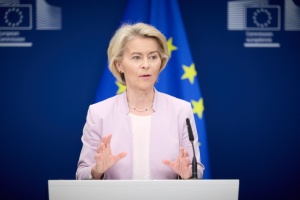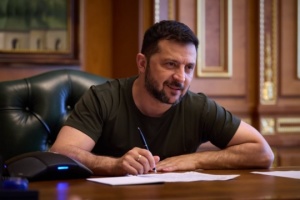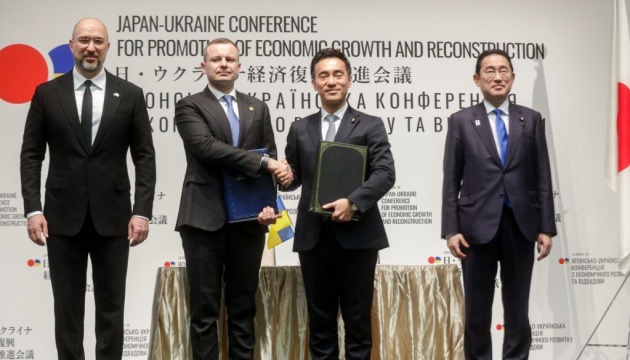
Reconstruction: how Tokyo encourages Japanese businesses to come to Ukraine
In January, Ukraine and the United Kingdom signed an agreement on security cooperation, which contains unprecedented agreements on cooperation and specific amounts of assistance in key defense and security areas for ten years and beyond. A month later, in February, Kyiv signed similar agreements with Berlin and Paris, and in the coming weeks, the number of countries that are making security commitments in cooperation with Ukraine will grow.
Weapons and military assistance are essential now, the enemy on our land must be destroyed and the occupied territories liberated, but the next step will be equally important - creation, restoration and reconstruction. Given the scale of the destruction caused by the aggressor, it will be difficult to cope alone, and Ukrainians also need allies. We have them, not only in the West but also in the East.
PARTNERS IN THE LAND OF THE RISING SUN
The geography of Ukraine's allies, the democracies that sincerely support our fight against the Russian invasion, covers the entire world. The lion's share of military and other assistance needed to deter the aggressor comes from the West, from friends in Europe and North America.
However, Ukraine also receives strong support from the East. The leader here is Japan, a small country with virtually no natural resources and a constant threat of earthquakes, but a country that is one of the five largest economies in the world and is considered one of the most technologically advanced countries.
Resource constraints and the constant struggle with the insidious elements have prompted the Japanese not to give up and rely on the mercy of fate, but to persistently seek new opportunities to improve, develop and strengthen their home. It is in Japan that the best experience of fast and high-quality reconstruction after large-scale destruction, which is so necessary for our country now, is concentrated.
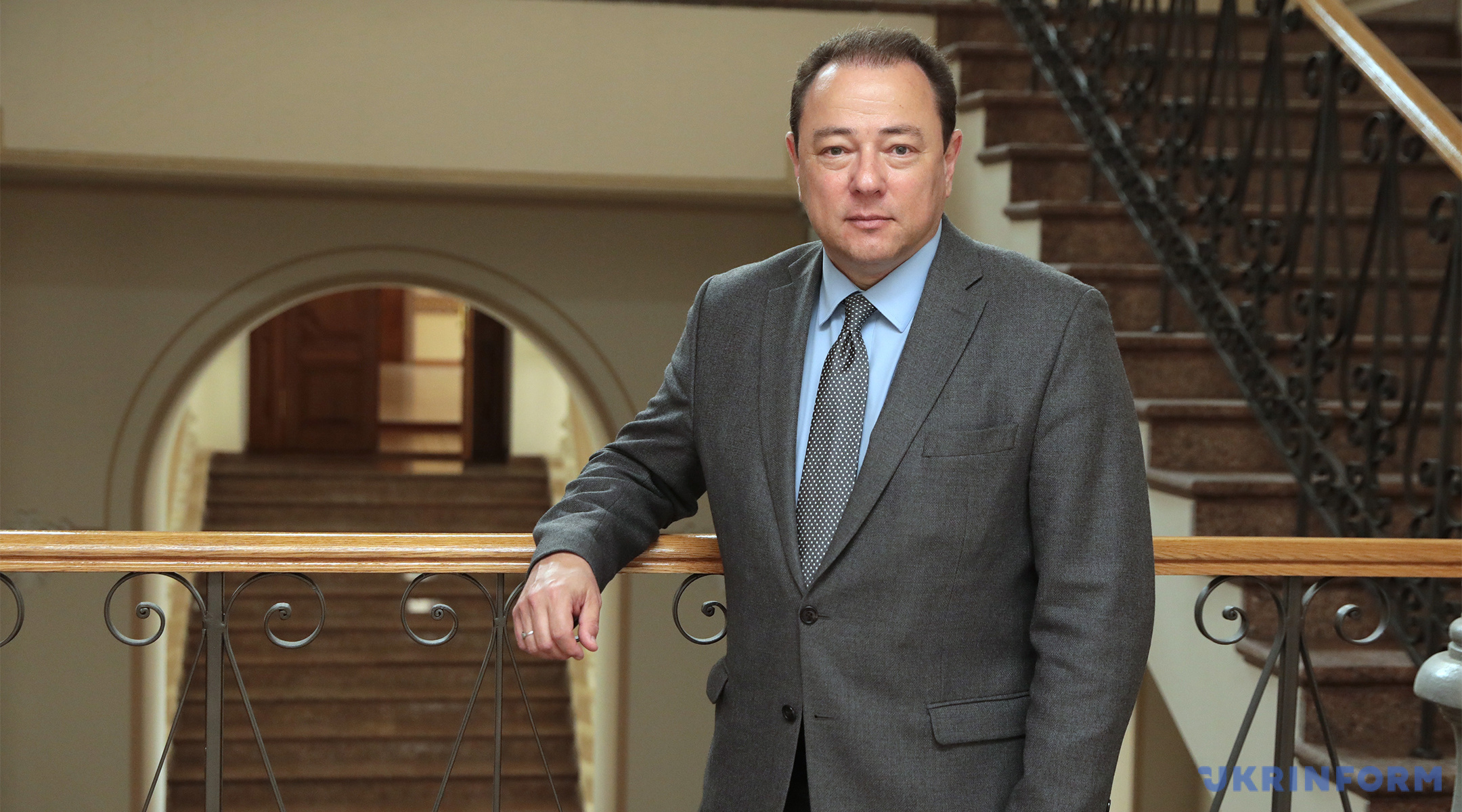
"If you are looking for the best experience in the world in rebuilding a country after the war, restoring infrastructure and industry, there is no better place than Japan," said Ukrainian Ambassador to Japan Sergiy Korsunsky, who has done and continues to do much to encourage Japanese businesses to invest in Ukraine.
Japan has been supporting Ukraine since the beginning of the full-scale war. This includes joining the EU and US sanctions packages, imposing its own restrictions on individuals and companies from Russia and other countries involved in the aggression, and, of course, providing significant financial and humanitarian assistance.
According to the Minister of Finance of Ukraine Sergii Marchenko, since February 2022, Japan has provided USD 4.6 billion to Ukraine through World Bank projects and the Japan International Cooperation Agency (JICA), including about USD 372 million in grants. According to him, this assistance is vital to ensure the economic and financial stability of Ukraine at war.
Tokyo cannot transfer lethal weapons because it is against the country's current legislation, so it focuses on reconstruction, emergency, which is being carried out now after the next enemy missile strikes, and future - after the victory and punishment of the aggressor.
The unannounced visit of Japanese Prime Minister Fumio Kishida to Kyiv in March last year gave a powerful impetus to the movement in this direction. After seeing what he saw in Bucha and in the Ukrainian capital itself and hearing from President Volodymyr Zelensky, Kishida became an even more determined lobbyist for assistance to Ukraine and promoted this issue not only in Japan but also kept it in the spotlight during Japan's presidency of the Group of Seven (G7) in 2023.
Apparently, it was then that the idea of holding a special conference on rebuilding Ukraine came up to involve as many Japanese companies as possible in reconstruction projects and to facilitate their business with Ukrainian partners. Kyiv and Tokyo have been working on this initiative for more than ten months to make it as effective as possible.
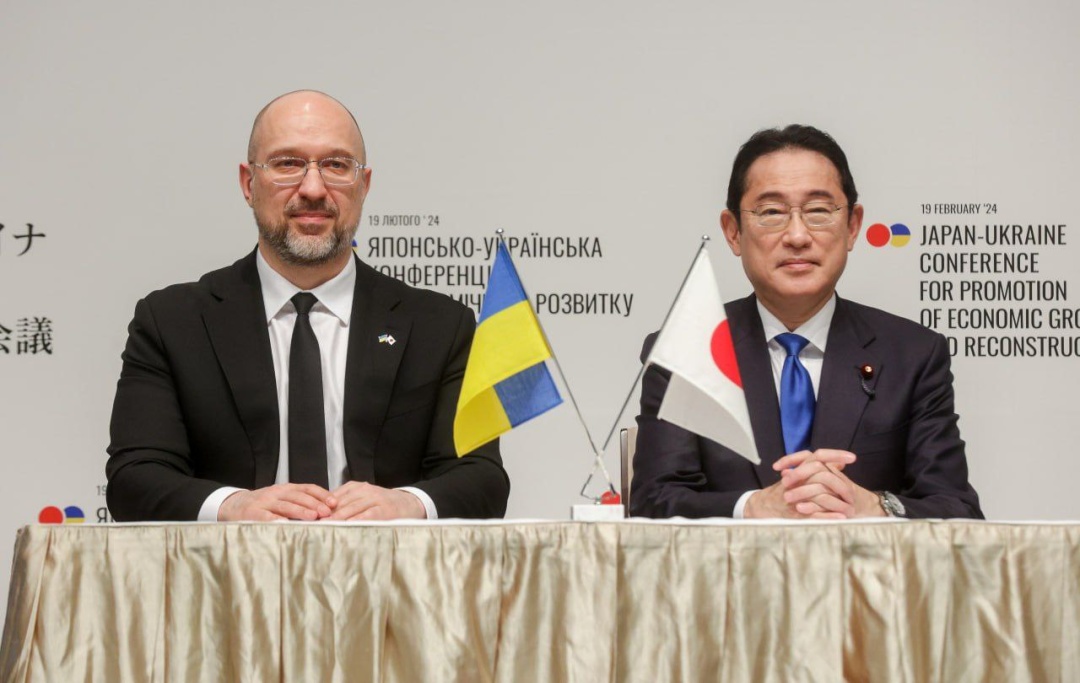
PARTNERSHIP BETWEEN THE STATE AND BUSINESS
The Ukraine Recovery Conference was held in Tokyo on February 19, and its results were indeed quite powerful, but more on that later. First, let's talk about some aspects of its organization that are important for a deeper understanding of the event.
The idea of the event was to inform Japanese companies about Ukraine's current and future recovery needs, encourage them to invest and develop projects in our country, and help them find Ukrainian business partners. At the same time, the Japanese government has selected seven target areas where the country has the best positions: demining, improving humanitarian conditions, agriculture, biochemical production, digital and information industries, electricity generation and transportation infrastructure, and anti-corruption measures.
The conference was organized by the governments of Japan and Ukraine, as well as the largest Japanese business federation Keidanren, which includes more than 1,600 participants, from large Japanese companies and industrial associations to regional economic associations, and the Japan External Trade Organization (JETRO), a government agency tasked with promoting mutual trade and investment between Japan and other countries.
This composition is in line with the Japanese government's approach to Ukraine's recovery based on public-private partnerships, where the state invites corporate business to join the implementation of important projects and provides all possible support and assistance. Such a partnership between the state and private business is traditional for Japan, but has not yet been sufficiently implemented in Ukraine.
However, this approach is clear to Japanese corporations and companies, and the government's participation in this initiative is an indicator of the reliability of Ukrainian partners and the fact that they can be trusted and dealt with.
The Ukrainian delegation, headed by Prime Minister Denys Shmyhal and including several ministers, heads of regions, heads of state-owned companies and private businesses, totaling more than 100 people, also demonstrated its readiness for substantive cooperation.
By the way, to encourage businesses to work in Ukraine, the Japanese government will soon amend legislation and simplify the rules for local entrepreneurs to travel to Ukraine. Under current regulations, Japanese people are not allowed to travel to the warring country, and those wishing to obtain a special permit have to go through lengthy and tedious procedures, which, of course, does not help matters.
The organizers arranged for Ukrainian and Japanese companies interested in prospects in Ukraine to meet in advance so that they could discuss future plans. Three days before the conference, the Japanese agency JICA organized a three-day presentation event in Tokyo, where potential business partners from the two countries could meet, learn about each other's capabilities, and identify areas of cooperation in reconstruction projects.
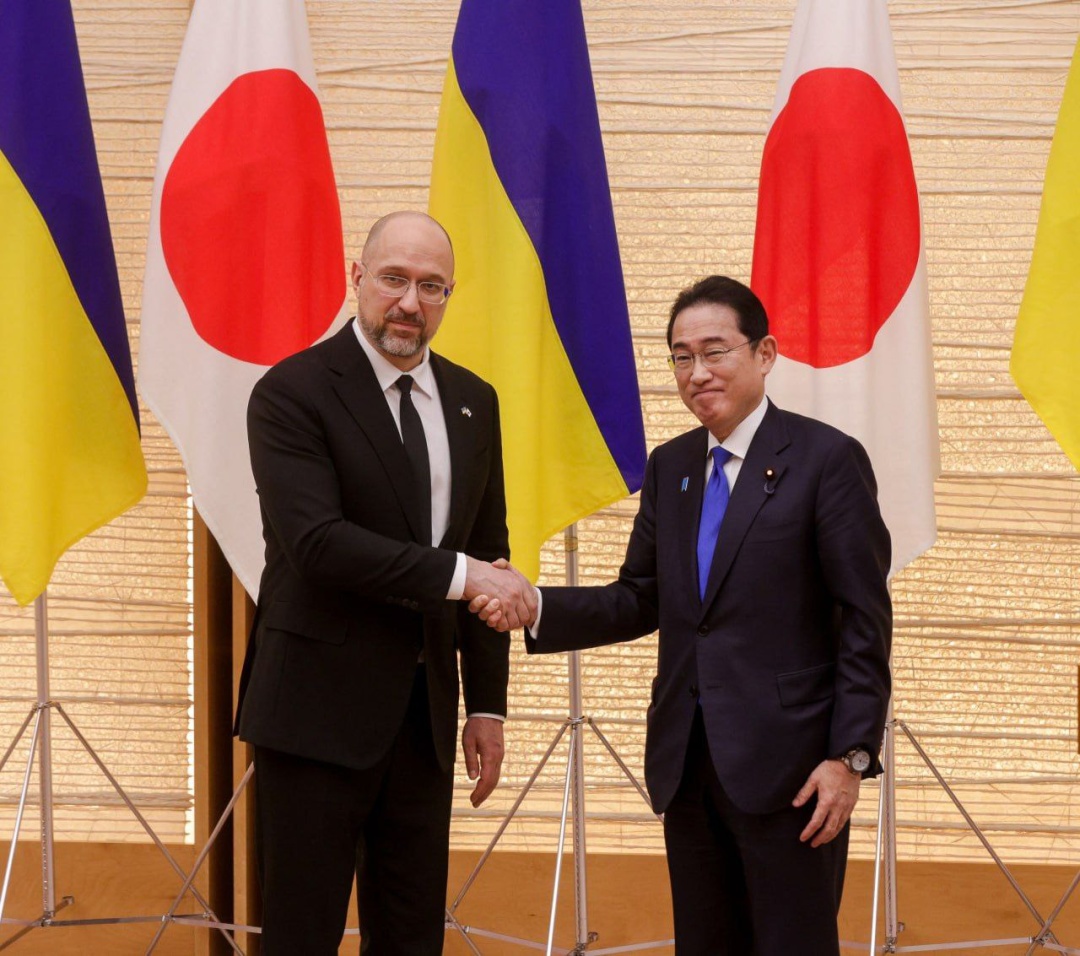
The conference itself, as already mentioned, was held on February 19 under the chairmanship of Prime Ministers Shmyhal and Kishida. About 200 Japanese participants gathered in the hall together with Ukrainians, including members of the Cabinet of Ministers, heads of state holdings, heads of business associations, heads of private corporations and companies, including Kawasaki Heavy Industries, Sumitomo Corp., Rakuten Symphony, Yanmar Agribusiness, etc.
One of the peculiarities noted by the organizers was the increased attention to the prospects of working in Ukraine by local startups. Representatives of these relatively small firms were actively interested in future projects and immediately offered their services with a significant innovative component.
During the conference, the heads of government of Ukraine and Japan delivered speeches and signed a joint communiqué with political statements condemning Russian aggression, the need to continue supporting Ukraine, and Japan's readiness to help with the recovery. The practical result was the signing of bilateral documents on cooperation between Ukraine and Japan, the number of which reached 56.
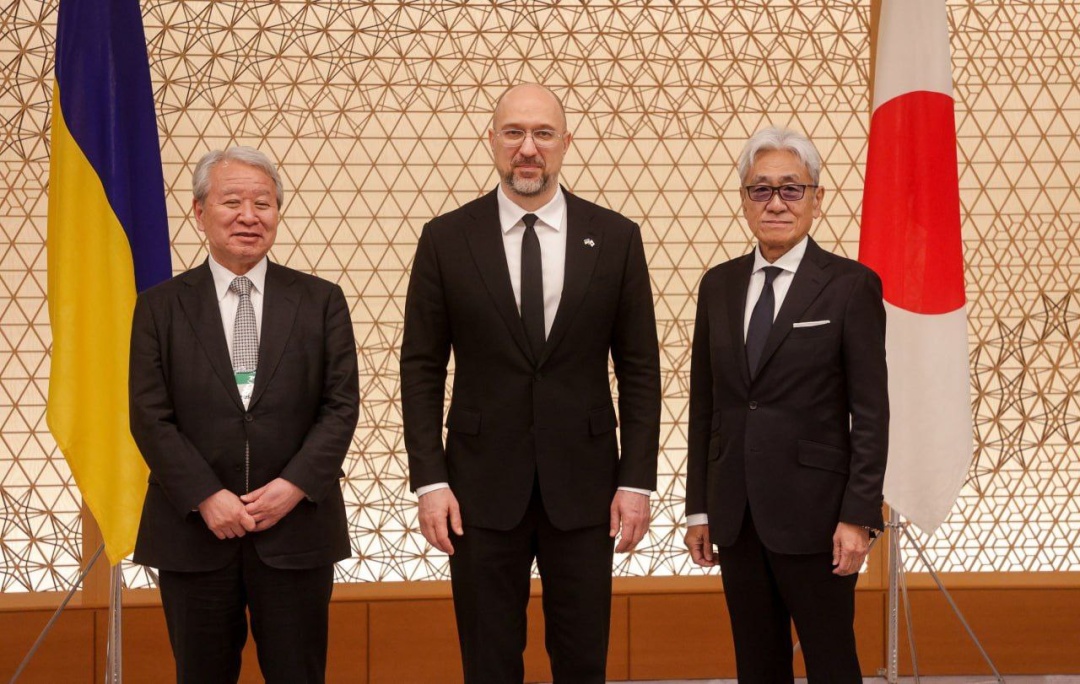
MEMORANDA AND AGREEMENTS
The list of signed agreements includes intergovernmental agreements, agreements between businesses and local authorities, but the lion's share is made up of memoranda of intent to cooperate. These are not contracts with clearly defined amounts of funding, obligations of the parties, etc., but this is how the contractual mechanism works: first, they agree to discuss a business project, and all the practical parameters of its implementation are determined in further negotiations. Therefore, memoranda should be transformed into business agreements and contracts in the near future.
A look at the list of signed documents published by the Japanese Foreign Ministry reveals a comprehensive approach of the governments of Ukraine and Japan to future cooperation in the long term. The agreements start with intergovernmental and departmental ones and go down to the regional level (regions and cities of Ukraine) and corporate agreements between public and private companies.
It is worthwhile to dwell on the agreements between governments, as they will have the greatest impact on the future of Ukrainian-Japanese relations, or rather their most important trade, economic and investment components. There are three of them, and they are aimed at encouraging businesses from both countries to cooperate more actively.
First, there is the Convention for the Elimination of Double Taxation with Respect to Taxes on Income and the Prevention of Fiscal Evasion and its Protocol. This is one of the most important documents for encouraging Japanese businesses to expand operations in Ukraine and vice versa - encouraging domestic entrepreneurs to work with Japanese partners.
The next is a memorandum on Ukraine's accession to Japan's Joint Crediting Mechanism. Participation in this mechanism will allow Ukraine to attract Japanese investments in decarbonization programs in various sectors of the Ukrainian economy and to rebuild production facilities and infrastructure in an environmentally friendly manner.
Another agreement is to provide Ukraine with a USD 100 million grant for Phase 3 of the Emergency Recovery Program. This program for the rapid restoration of energy and transport infrastructure and demining, which has been implemented in Ukraine for some time with the support of the Japanese government (Phase 1 and Phase 2), allows for the rapid repair of critical infrastructure destroyed by the ongoing Russian shelling.
Shmyhal and Kishida also agreed to start formal negotiations on a bilateral agreement on the protection of information important to preventing the leakage of commercial and other confidential data, and discussed visa liberalization for Ukrainian citizens, including business representatives.
The Ministries of Education of Ukraine and Japan signed a memorandum on cooperation in education and technology, and the Ukrainian Ministry of Agrarian Policy signed agreements with large Japanese companies Kubota and Yanmar Agribusiness to provide Ukraine with agricultural machinery, equipment and agricultural technologies.
Naftogaz Group signed memorandums with Japanese companies Sumitomo Corp., Kawasaki Heavy Industries, and Komaihaltec to modernize thermal power plants, develop a joint wind energy project, and prepare for the modernization of gas compressor stations of the Ukrainian gas transmission system operator.
More than a dozen agreements on support for Ukraine's reconstruction have been signed with Japan's powerful international cooperation agencies JICA, JETRO, the Export Credit Agency NEXI, and the Japan Bank for International Cooperation. Thus, the Japanese government, through the NEXI agency, will finance a EUR 1.25 billion program to support its investors in Ukraine and intends to provide Kyiv with up to USD 4.5 billion in financial assistance this year.
Corporate agreements include an agreement between Rakuten Symphony and Kyivstar on the joint restoration of digital infrastructure in Ukraine, memoranda between Ukrainian and Japanese companies on the supply of demining equipment, autonomous water treatment, mini power plants and generators, etc. Several documents have been signed with Japanese consulting firms that provide analysis and project preparation services in various industries.
"GUARANTEES" OF RECOVERY
The recovery conference in Tokyo was not very prominent in the media against the backdrop of recent high-profile events in Ukraine, Russia, the EU, and the United States, but its importance is no less. In terms of their implications for the future of Ukrainians, the agreements concluded in the Japanese capital can be safely compared to security guarantees, as they are also guarantees, only for recovery and reconstruction.
Moreover, the restoration will be based on the best modern examples and best practices, with green energy, a "smart city," automated environmentally friendly production, waste recycling, and so on. This is an enormous amount of work that will be extremely difficult to accomplish on our own.
Just to take two aspects, such as demining and disposal of the huge amount of debris created by the war. To solve these tasks alone, it would take years to find the best solutions, test them, and implement them. Instead, our Japanese partners already have the means to detect explosive devices by scanning the area from the air, as well as proven technologies for recycling construction waste, where concrete and asphalt debris are processed into materials for use in road pavement and new construction.
In addition to the opportunity to obtain advanced Japanese technologies and experience, there are other, less obvious positive effects of close cooperation with Japan. Agreements with Tokyo will send a signal to other countries and international corporations, companies, and funds that Ukraine is a good place to do business.
If Japanese business goes to Ukraine, it means that it is safe to work there, not physically, but legally, which means that there is a favorable business climate and respect for property rights. This will be the best refutation of fakes and the negative image of corrupt oligarchic Ukraine that Russian propaganda has been diligently building in the world for decades.
President Volodymyr Zelensky thanked Japanese Prime Minister Kishida, his team and the entire Japanese people for their strong support of our country and Ukrainians.
"Most importantly, we saw how many Japanese love Ukraine. We will be forever grateful for this," the President emphasized.
To win the Great War and protect itself from new Russian invasions, Ukraine needs to have a powerful armed forces and a strong security sector. This requires significant financial resources that will be generated by a rebuilt national economy.
Of course, not only Japan, but many other countries outraged by Russia's barbarism and brutality are ready and willing to help Ukrainians rebuild their homes. But Japan should be given a special place not only because it is the fifth largest economy in the world and a technologically advanced country, but also because it has similar problems with Moscow as we do: the occupied Northern Territories, which the Russians call the Southern Kurils.
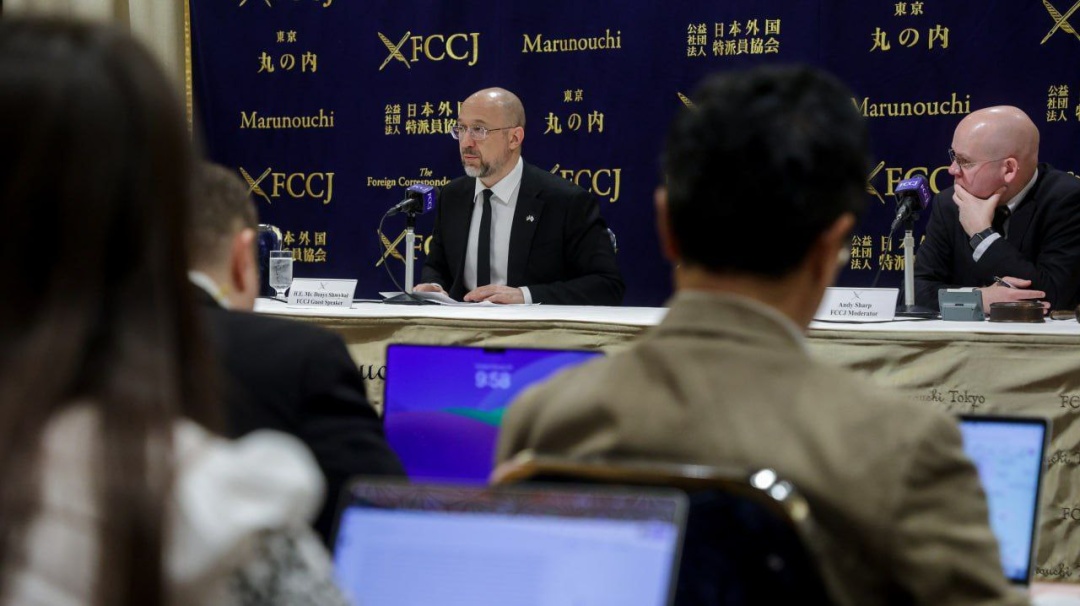
The Ukrainian prime minister also mentioned them at a joint press conference with Kishida, calling for help from mythical characters from the world that fills the head of Russian dictator Putin.
"One pseudo-historian in the Kremlin will definitely justify the occupation of the Kuril Islands with the mythical Scandinavian Rurik, Ivan the Terrible, Peter the Great, elves or dwarves. But for us, for you, this does not matter, because justice and international law are on the side of Japan and on the side of Ukraine," said Denys Shmyhal.
The first important step has been taken in Tokyo. There is still a lot of work to be done, but the mood that prevailed in the conference hall gives us confidence that together we will overcome all difficulties and rebuild our Ukraine.
Volodymyr Sydorenko, Beijing
Photo: Denys Shmyhal / Telegram



